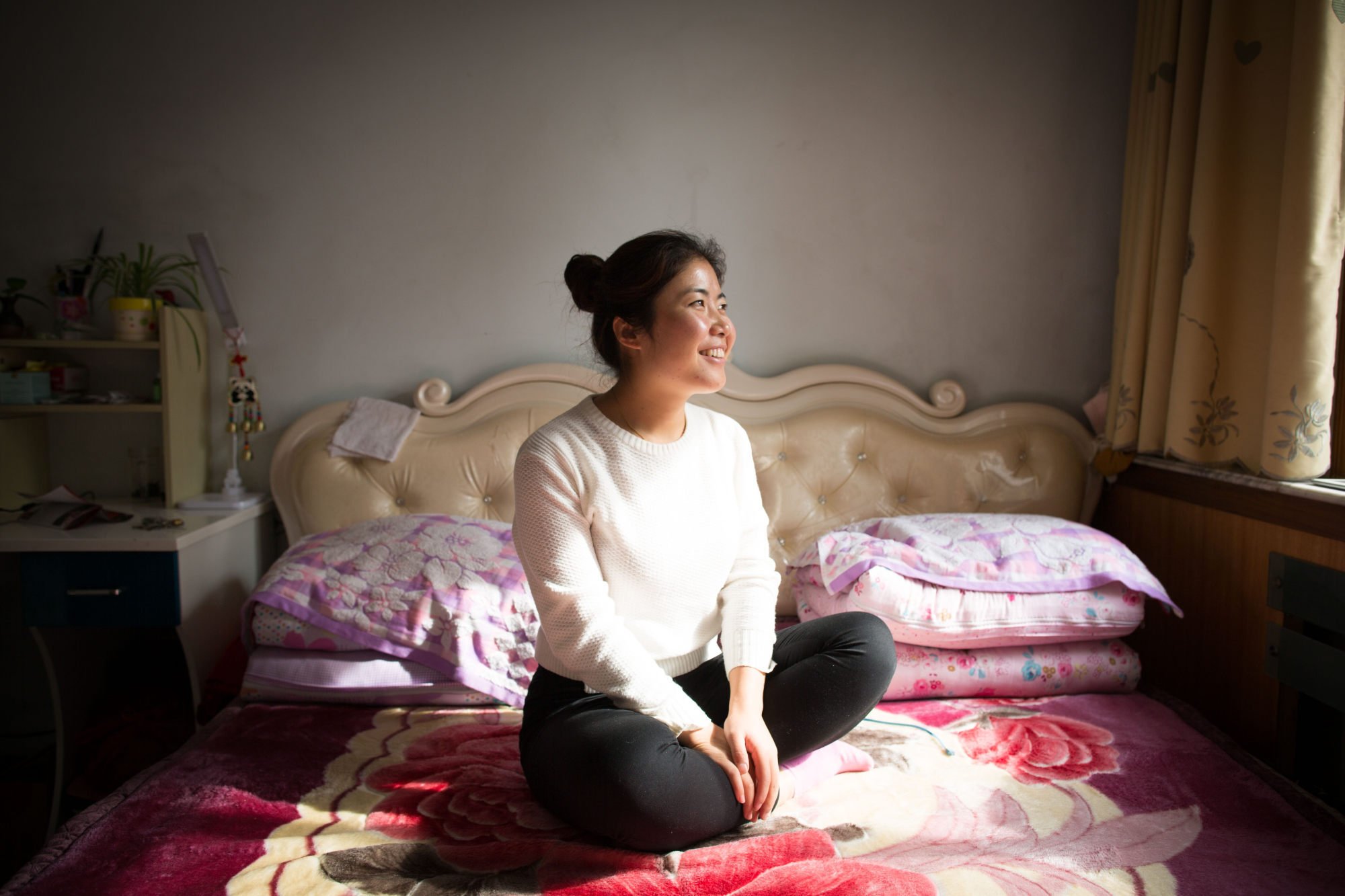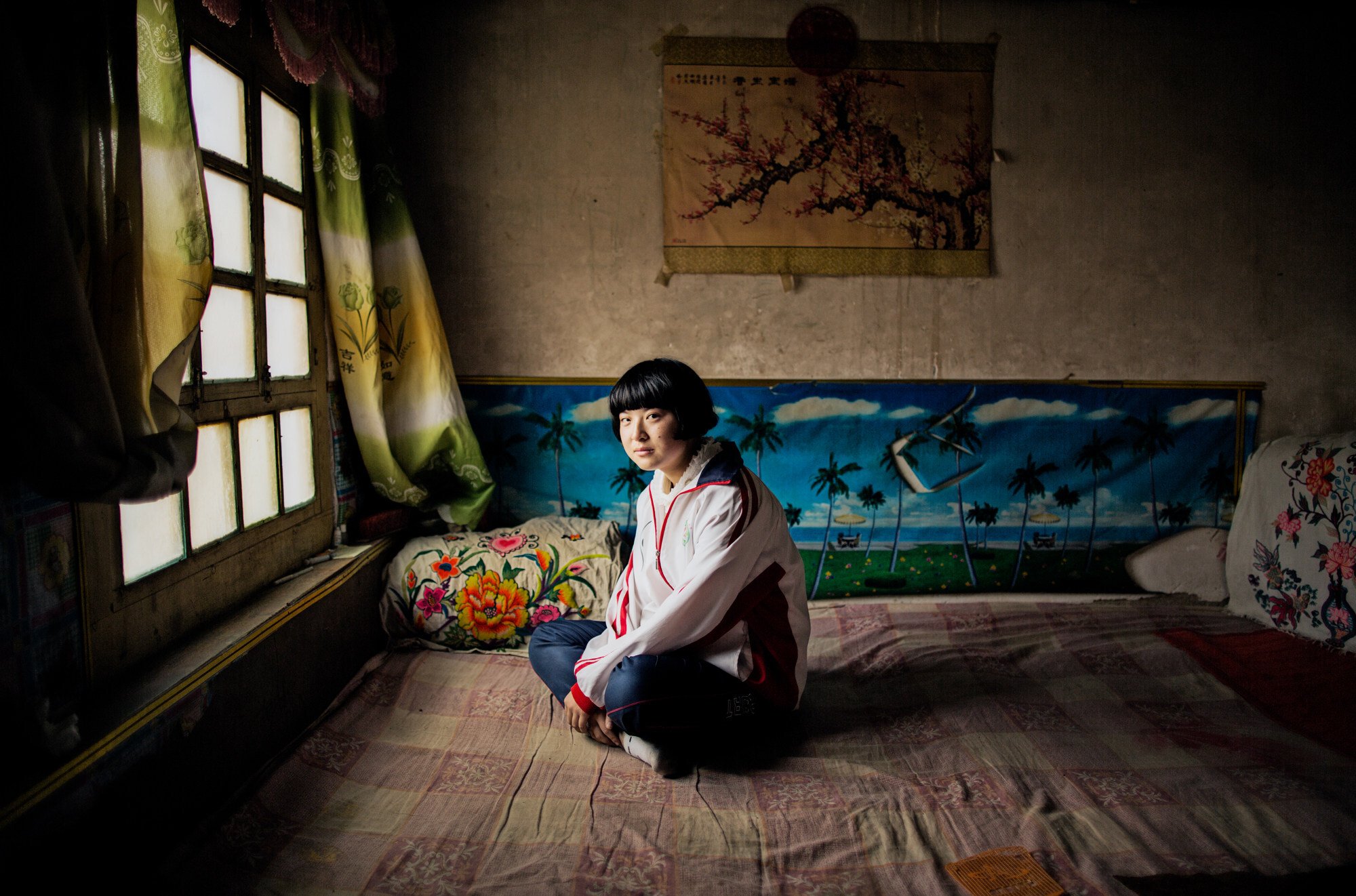
Non-profit that empowers rural Chinese women through education celebrated in portraits of some of those it has helped
- A charity founded by a Chinese Canadian has funded the education of more than 1,400 women in rural China, some from families earning just US$400 a year
- Photographer Olivia Martin-McGuire helped Educating Girls of Rural China celebrate its 15th anniversary by shooting portraits of women it helped
Daisy Gong was raised in a poor family in the small, remote mountainous village of Aganzhen, in Gansu province, northwest China. The eldest of three children, she grew up planting lily bulbs with her mother.
She started school aged five, walking an hour each way. “When I started high school, my mother would give me 15 to 20 yuan to eat for the whole week. Sometimes she had to borrow the money,” says the 32-year-old by email. “People around me did not think girls should have too much education.”
“I was determined to go to university,” says Gong. In 2008, she was accepted by Hubei University of Economics to study nutrition science. At the same time she met Ching Tien, a Canadian citizen who grew up in China, and who founded Educating Girls of Rural China (EGRC), a non-profit that empowers young women like Gong through education.

Since 2005, EGRC has sponsored more than 1,400 women through high school and university, with a 100 per cent graduation rate, helped women find employment and lifted their families out of poverty. In rural Gansu, annual per capita income is about US$1,000, only one-seventh that in Beijing or Shanghai. The annual family incomes of some EGRC-sponsored students are as little as US$400-$500, the charity says.
“I connected with EGRC when I most needed help,” says Gong, who had part of her university costs paid for by the charity. “EGRC and Ms Tien did not just provide financial sponsorship, they really cared … I could not believe there were such wonderful people in this world.”
Last year, EGRC celebrated its 15th anniversary with a book featuring photos by Australian filmmaker and photographer Olivia Martin-McGuire.
She visited Gansu three times, between 2016 and 2019, driving “across rivers and up mountains, and to small clay houses to visit with the girls and their carers. The family situations were alarming”.
“In these remote regions there are no regulations on farming equipment, so many parents have been left disabled … They literally have no money and many of the girls were often the first to give up their education to support the family.”


For her portrait sessions, Martin-McGuire had girls sit on a kang – a large bed with burning coals underneath for warmth. When she asked what EGRC had done for them, tears would flow. “EGRC changed these girls’ and their families’ destinies. The mothers would clutch their daughters’ hands, saying they never dreamed of a chance like this and how could they ever repay their beautiful Auntie Ching Tien.”
In 1983, Ching moved to Canada but memories of Gansu remained strong, and in 2005 she returned with the intention of supporting girls’ education. “I visited people I knew while I was working in that factory,” says Ching by email. “The living conditions were better than when I was there in the ’70s, but access to higher education, particularly for girls, was a huge hurdle.”
“In China the rich are getting richer, but the poor are getting better. The gap will always be huge and will be always there, just like in the West. Education, particularly educating girls […] can change lives for the less privileged.”

“I encourage the girls to dream big and I spread EGRC’s belief that educated women have educated children.”
“











